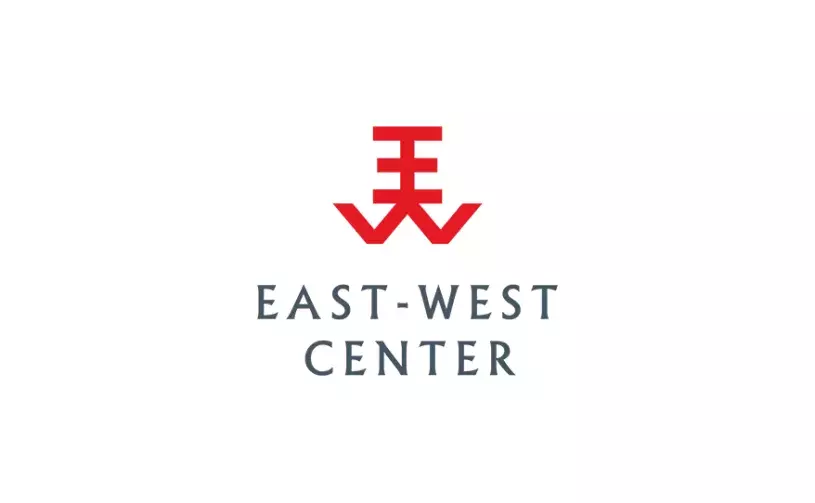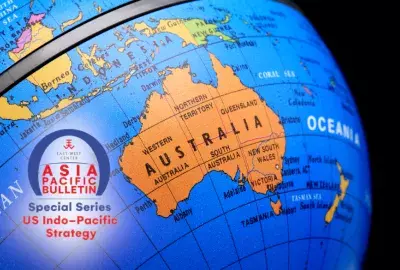Error message

Kaewkamol Karen Pitakdumrongkit, Visiting Fellow, East-West Center in Washington, explains that "While internal tensions would be unlikely to make the Kingdom turn its backs on ASEAN’s pursuit of regional integration, they could distract its attention." |
Thailand will assume the chair of the Association of Southeast Asian Nations (ASEAN) in 2019. As the chair has the ability to set forth certain regional agendas, the Kingdom’s vision and positions will affect not only economic integration within ASEAN, but also the bloc’s economic relations with non-ASEAN players. History teaches us that a state’s domestic political dynamics can significantly alter its foreign economic policies. Will this be the case for Thailand?
Thailand’s Current Domestic Political Dynamics
Although the country’s GDP grew by 4.8% in the first quarter of 2018 – the fastest rate since 2013 — this upturn did not increase the junta’s popularity among the Thai public. For one thing, the distribution of benefits were uneven. The past few years’ economic gains were concentrated in manufacturing and tourism, while agriculture lost jobs. Domestic consumption remained sluggish due to high household debt among low-income individuals and farmers. A Thai Chamber of Commerce University study found that the household’s average debt soared to 137,988 baht (about US$4000) – the highest in 10 years. Moreover, the junta’s management of the economy and its effort to curtail corruption were perceived negatively by the Thai public. Suan Dusit Rajabhat University’s poll in mid-May 2018 revealed that these issues were ranked as the number one and two factors disappointing the Thai society. The corruption findings are consistent with Transparency International’s Corruption Perceptions Index, which ranked the Kingdom 37 out of 100, a lower score than the one it got in 2014 when the putsch occurred. In addition, Thai individuals and interest groups have found it difficult to put pressure on the junta and affect policy-making because the regime has since 2015 invoked the Article 44 on several occasions to curb dissenting voices and government opposition.
The public’s discontent with the military government grew even more intense when Prime Minister General Prayuth Chan-Ocha once again postponed the general election, this time to February 2019. While it is unclear whether the junta will keep its promise this time, it is worth examining what Thailand’s post-election political dynamics might look like, and what they might mean for the government’s foreign economic vision and policies.
The (Possible) 2019 General Election Outcomes
If the general election is held as planned in February 2019, Thailand is likely to witness a coalition government with some degree of military control over the Parliament. First, the current Constitution is written in ways that keep political parties weak. Second, while the electoral system is used to select the 500 members of the Lower House, the Charter mandates that all 250 senators are to be appointed under the junta’s auspices. These hand-picked individuals could vote as a bloc and determine the country’s policies. Third, the Constitution allows a non-elected, non-parliamentarian to become prime minister if 500 of the 750 members of parliaments vote to permit such a choice. Finally, the new government must implement the 20-year National Strategy Plan (2017-2036) set by the military regime or otherwise face impeachment.
Thailand’s Positions Regarding Regional Economic Integration
How will a coalition government affect Thailand’s positions on regional economic integration? There will be some internal tensions or conflicts within the coalition government as different political parties or groups might hold dissimilar views on the country’s economic policies. Such conflicts could draw the Kingdom’s attention away from its plan to further enhance regional economic integration, but they will not make the state adopt an anti-globalization stance. Thailand is likely to remain a supporter of an open economic system for a number of reasons.
First, Thai politicians and military leaders agree that closing the economy would significantly hurt the country, especially since Bangkok’s external trade accounts for 123% of its GDP. Moreover, it is still uncertain whether Washington-Beijing tensions will finally be resolved or whether they will spiral into a full-blown trade war in the future. Such a war would not bode well for Thailand, because the state’s economy is deeply embedded in transnational production networks. Additionally, the U.S. Trade Representative reported that Washington has a trade deficit of about $19 billion with Thailand, and that the latter inadequately enforces rules protecting intellectual property rights. Bangkok fears that these findings could entail the US imposition of punitive measures. Consequently, these factors explain the Thai government’s desire to focus on the regional market and the rising middle class for its future economic growth and development.
Therefore, it is likely that Thailand, as the 2019 ASEAN Chair, will support regional schemes designed to create a more open regional economy, notably the ASEAN Economic Community 2025 (AEC 2025) and the Regional Comprehensive Economic Partnership (RCEP). RCEP, which is still under negotiation, is a trade agreement among the ten ASEAN members and six dialogue partners (Japan, South Korea, China, Australia, New Zealand, and India). If concluded, the pact will represent about 30% of global GDP and one-third of the world’s exports.
Bangkok’s focus is also likely to be on regional agendas enhancing technology and innovation. The new government will probably want to leverage these initiatives to help transform Thailand into a digital economy and meet the government’s 20-year economic plan. As a result, it will likely give special attention to the advancement of particular ASEAN initiatives, such as ASEAN’s Information and Communications Technology (ICT) Master Plan and the Master Plan on ASEAN Connectivity 2025, which lists digital innovation as one of its strategic priorities.
There will be certain challenges to these initiatives, namely digital protectionism and the digital divide. The first problem occurs because some governments’ rules and regulations act as barriers and impediments to digital trade. Regarding the second, there exist many pockets in ASEAN economies and societies with inadequate E-infrastructure. However, whether the Thai chair can effectively tackle these issues will largely depend on its ability to provide leadership. As most ASEAN’s decisions are based on consensus, a strong chairman can help rally all stakeholders to jointly agree on and implement regional schemes. Such ability is linked to the politics at home. While internal tensions would be unlikely to make the Kingdom turn its backs on ASEAN’s pursuit of regional integration, they could distract its attention. Let us hope that the Thai chair will keep its eye on the “ASEAN road” even as it considers domestic needs and elections.
Kaewkamol Karen Pitakdumrongkit, Visiting Fellow, East-West Center in Washington, explains that "While internal tensions would be unlikely to make the Kingdom turn its backs on ASEAN’s pursuit of regional integration, they could distract its attention." |
Thailand will assume the chair of the Association of Southeast Asian Nations (ASEAN) in 2019. As the chair has the ability to set forth certain regional agendas, the Kingdom’s vision and positions will affect not only economic integration within ASEAN, but also the bloc’s economic relations with non-ASEAN players. History teaches us that a state’s domestic political dynamics can significantly alter its foreign economic policies. Will this be the case for Thailand?
Thailand’s Current Domestic Political Dynamics
Although the country’s GDP grew by 4.8% in the first quarter of 2018 – the fastest rate since 2013 — this upturn did not increase the junta’s popularity among the Thai public. For one thing, the distribution of benefits were uneven. The past few years’ economic gains were concentrated in manufacturing and tourism, while agriculture lost jobs. Domestic consumption remained sluggish due to high household debt among low-income individuals and farmers. A Thai Chamber of Commerce University study found that the household’s average debt soared to 137,988 baht (about US$4000) – the highest in 10 years. Moreover, the junta’s management of the economy and its effort to curtail corruption were perceived negatively by the Thai public. Suan Dusit Rajabhat University’s poll in mid-May 2018 revealed that these issues were ranked as the number one and two factors disappointing the Thai society. The corruption findings are consistent with Transparency International’s Corruption Perceptions Index, which ranked the Kingdom 37 out of 100, a lower score than the one it got in 2014 when the putsch occurred. In addition, Thai individuals and interest groups have found it difficult to put pressure on the junta and affect policy-making because the regime has since 2015 invoked the Article 44 on several occasions to curb dissenting voices and government opposition.
The public’s discontent with the military government grew even more intense when Prime Minister General Prayuth Chan-Ocha once again postponed the general election, this time to February 2019. While it is unclear whether the junta will keep its promise this time, it is worth examining what Thailand’s post-election political dynamics might look like, and what they might mean for the government’s foreign economic vision and policies.
The (Possible) 2019 General Election Outcomes
If the general election is held as planned in February 2019, Thailand is likely to witness a coalition government with some degree of military control over the Parliament. First, the current Constitution is written in ways that keep political parties weak. Second, while the electoral system is used to select the 500 members of the Lower House, the Charter mandates that all 250 senators are to be appointed under the junta’s auspices. These hand-picked individuals could vote as a bloc and determine the country’s policies. Third, the Constitution allows a non-elected, non-parliamentarian to become prime minister if 500 of the 750 members of parliaments vote to permit such a choice. Finally, the new government must implement the 20-year National Strategy Plan (2017-2036) set by the military regime or otherwise face impeachment.
Thailand’s Positions Regarding Regional Economic Integration
How will a coalition government affect Thailand’s positions on regional economic integration? There will be some internal tensions or conflicts within the coalition government as different political parties or groups might hold dissimilar views on the country’s economic policies. Such conflicts could draw the Kingdom’s attention away from its plan to further enhance regional economic integration, but they will not make the state adopt an anti-globalization stance. Thailand is likely to remain a supporter of an open economic system for a number of reasons.
First, Thai politicians and military leaders agree that closing the economy would significantly hurt the country, especially since Bangkok’s external trade accounts for 123% of its GDP. Moreover, it is still uncertain whether Washington-Beijing tensions will finally be resolved or whether they will spiral into a full-blown trade war in the future. Such a war would not bode well for Thailand, because the state’s economy is deeply embedded in transnational production networks. Additionally, the U.S. Trade Representative reported that Washington has a trade deficit of about $19 billion with Thailand, and that the latter inadequately enforces rules protecting intellectual property rights. Bangkok fears that these findings could entail the US imposition of punitive measures. Consequently, these factors explain the Thai government’s desire to focus on the regional market and the rising middle class for its future economic growth and development.
Therefore, it is likely that Thailand, as the 2019 ASEAN Chair, will support regional schemes designed to create a more open regional economy, notably the ASEAN Economic Community 2025 (AEC 2025) and the Regional Comprehensive Economic Partnership (RCEP). RCEP, which is still under negotiation, is a trade agreement among the ten ASEAN members and six dialogue partners (Japan, South Korea, China, Australia, New Zealand, and India). If concluded, the pact will represent about 30% of global GDP and one-third of the world’s exports.
Bangkok’s focus is also likely to be on regional agendas enhancing technology and innovation. The new government will probably want to leverage these initiatives to help transform Thailand into a digital economy and meet the government’s 20-year economic plan. As a result, it will likely give special attention to the advancement of particular ASEAN initiatives, such as ASEAN’s Information and Communications Technology (ICT) Master Plan and the Master Plan on ASEAN Connectivity 2025, which lists digital innovation as one of its strategic priorities.
There will be certain challenges to these initiatives, namely digital protectionism and the digital divide. The first problem occurs because some governments’ rules and regulations act as barriers and impediments to digital trade. Regarding the second, there exist many pockets in ASEAN economies and societies with inadequate E-infrastructure. However, whether the Thai chair can effectively tackle these issues will largely depend on its ability to provide leadership. As most ASEAN’s decisions are based on consensus, a strong chairman can help rally all stakeholders to jointly agree on and implement regional schemes. Such ability is linked to the politics at home. While internal tensions would be unlikely to make the Kingdom turn its backs on ASEAN’s pursuit of regional integration, they could distract its attention. Let us hope that the Thai chair will keep its eye on the “ASEAN road” even as it considers domestic needs and elections.







